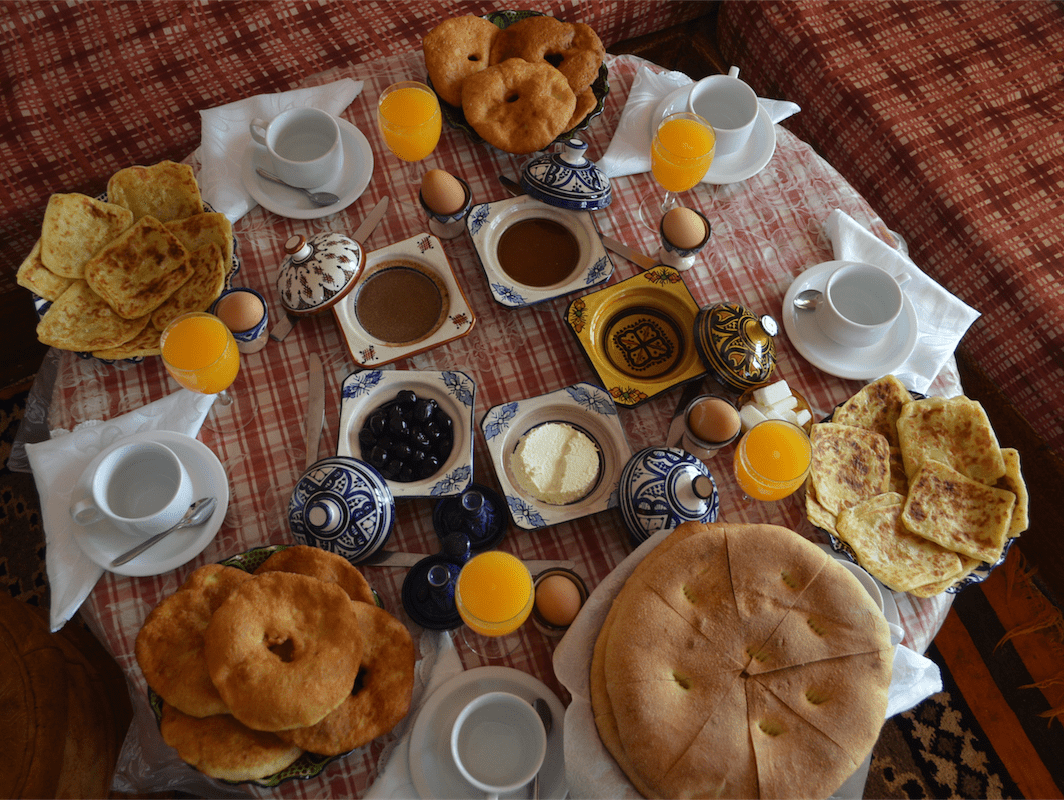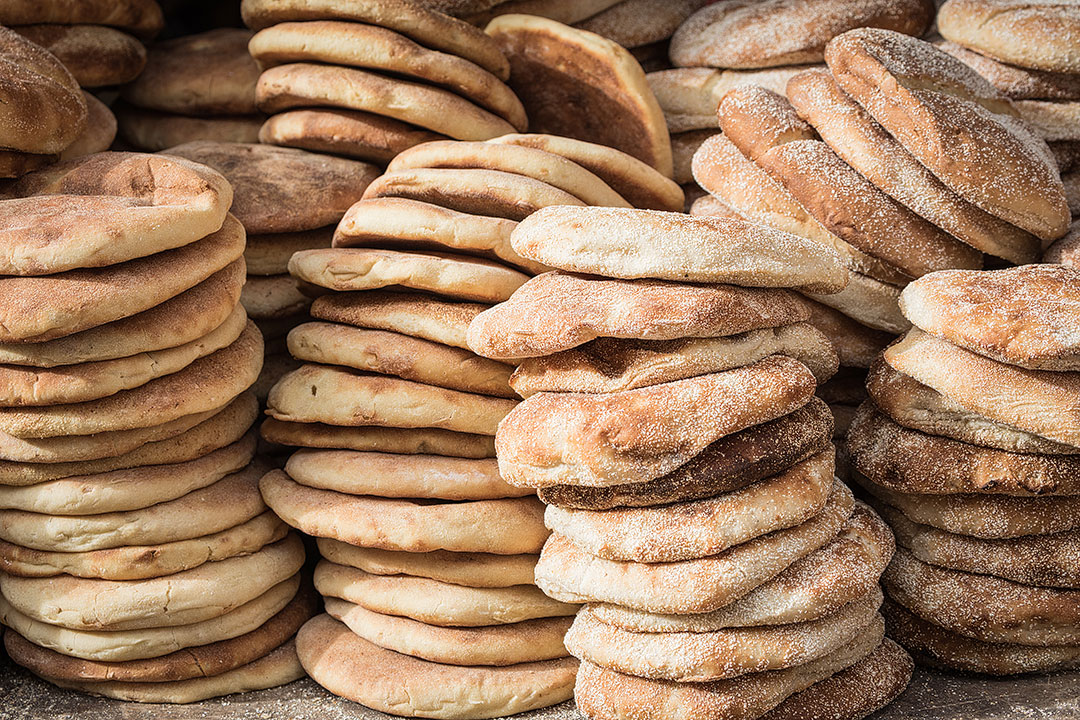By embracing Moroccan etiquette and culture, you'll enjoy a more immersive and respectful travel experience and foster positive interactions with the Moroccan people. Morocco's charm lies not just in its stunning landscapes and culinary delights but also in the warmth and hospitality of its inhabitants.
Dining and Culture
Embarking on a journey to Morocco is not just about exploring its vibrant landscapes and historical sites; it's also about immersing yourself in the rich culture and savoring the flavors of this captivating country. To make the most of your Moroccan experience, it's essential to understand the local etiquette when dining and interacting with the gracious Moroccan people.
Dining Etiquette:
Wash Your Hands
Before and after a meal, it's customary to wash your hands. You'll find a basin and pitcher in many Moroccan restaurants for this purpose. Embrace this pre- and post-meal ritual with respect.

Embrace Sharing
Moroccan meals are often shared, and it's customary for dishes to be placed in the center of the table for everyone to enjoy. A delightful aspect of Moroccan dining etiquette is the emphasis on sharing, which allows everyone to savor the diverse flavors and enjoy a sense of togetherness. Remember that even if everyone is eating from the same main plate, each person is expected to eat on their side without eating from all around the dish. This practice showcases respect for boundaries and ensures everyone gets their fair share.
Use Your Right Hand
Moroccans traditionally use their right hand for eating. The left hand is considered unclean, so follow suit to show respect for local customs.
Eating with Your Hands: Eating with your hands is common in Morocco, but there are rules around it. When eating with your hands, use only the three first fingers and employ the tips of the fingers rather than the whole hand. This approach demonstrates respect for the food and the dining experience.
Try a Bit of Everything

Moroccan cuisine offers diverse flavors and textures. Take advantage of the opportunity to try various dishes, from savory tagines to sweet pastries. Moroccan hosts take pride in providing an abundance of food to their guests.
Generous Hospitality
In Moroccan households, hosts often offer food multiple times during a meal. This warm hospitality is a way to show that visitors are not only welcome but also highly regarded. While sometimes overwhelming, it's a gesture of warmth and kindness. A polite "Shukran, Hamdoullah" (Thank you, thank you, God) will be appreciated if you cannot eat more.
Bread is King
Moroccan meals often revolve around bread, especially the round and crusty Khobz. Use it to scoop up stews, salads, and soups. Tear off a piece and enjoy this essential part of Moroccan dining.

Be Mindful of Your Host
If you're invited to a Moroccan home, bringing a gift, such as pastries or nuts, is customary. When dining, follow the lead of your host – if they say "Bismillah" (in the name of God) before eating, it's polite to do the same.
Cultural Etiquette
Greetings and Politeness
Moroccans are known for their warm hospitality. Greet people with a smile and a friendly "Salam" (peace). Showing respect is paramount in Moroccan culture. Use polite phrases like "Shukran" (thank you) and "Barakallahoufik" (may God bless you) to express your gratitude.
Dress Modestly
Morocco is predominantly Muslim, and modest dress is appreciated. While Western clothing is acceptable in urban areas, consider covering your shoulders and knees, especially when visiting religious sites.
Shoes Inside Houses
In Moroccan homes and some sacred spaces, removing your shoes before entering is customary as a sign of respect and cleanliness.
Public Displays of Affection
Public displays of affection are considered inappropriate. Reserve your affectionate gestures for private settings to show respect for local customs.
Friday is a Holy Day
Friday is considered a day of worship in Morocco. Many businesses may close for part of the day, so plan your activities accordingly. It's an excellent opportunity to experience the serene atmosphere around mosques.
Haggling at Markets
Bargaining is common in Moroccan markets (souks). Polite negotiation is expected, but remember to be fair and respectful.
Photography
Always ask for permission before taking photos of people, especially in more rural or traditional areas. Please respect their privacy and wishes.
Keep Left When Walking
In busy streets and markets, keeping to the left side of the road or pathway is customary. This helps with the flow of pedestrian traffic.
In conclusion, embracing Morocco's etiquette is a wonderful way to connect with its rich culture. Moroccans truly appreciate when visitors make an effort to respect their customs, but they also understand that cultural differences exist. While following traditions such as greeting with "Salaam Alaikum," dressing modestly, and enjoying Moroccan hospitality is appreciated, there's no need to worry about being perfect. Moroccans value sincere interactions and an open heart above all else. So, while it's great to observe etiquette, remember that kindness and a willingness to learn are what truly matter, fostering beautiful connections that go beyond cultural boundaries in this warm and welcoming country.

